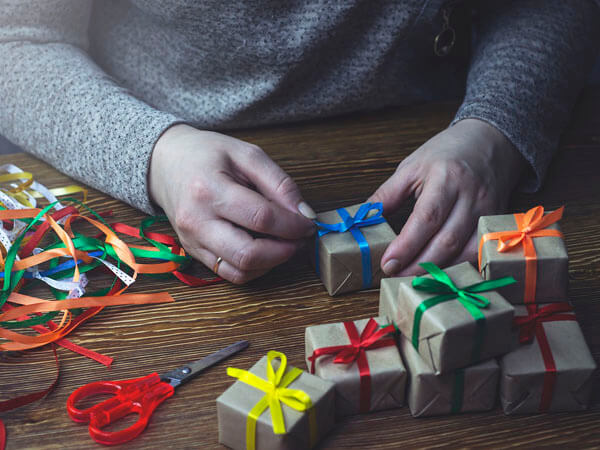Gift giving in China is a rich and intricate tradition, filled with symbolism and deep cultural significance. Imagine the delight on your friend’s face when you bring the perfect gift to their home, or the respect you show in a business meeting with a thoughtfully chosen present. However, a misstep in this delicate practice can lead to awkwardness or even offense.
Navigating this landscape can feel like walking a tightrope, but it doesn’t have to be intimidating. With a little guidance, you can master the art of Chinese gift giving and make every gesture meaningful. This guide will take you through the essential dos and don’ts, helping you choose the right gifts, avoid common pitfalls, and understand the proper etiquette for giving and receiving gifts. Whether you’re new to these customs or looking to refine your skills, you’ll find everything you need to leave a positive, lasting impression.
Gift Giving in China Tips
Gift giving in China is a nuanced practice rooted in cultural traditions, where every detail—from the choice of gift to its presentation—holds significance. Mastering these customs enhances interpersonal relationships and demonstrates respect:
Make Sure The Price is Right:
Selecting a gift of appropriate value is crucial. Chinese culture places importance on the symbolism of gifts, where overly extravagant gifts can create discomfort or obligations, while gifts perceived as too modest may seem insincere. Balancing the value to match the occasion and relationship ensures the gesture is well-received.
Wrap Up Properly:
Presentation is key in Chinese gift giving. Gifts are often meticulously wrapped in vibrant colors like red and gold, symbolizing luck and happiness. Neat and thoughtful wrapping not only enhances the aesthetic appeal but also shows respect and care for the recipient, making the gesture more meaningful.

Pay Attention To Your Card:
Including a personalized card with heartfelt sentiments adds a personal touch to the gift. The message should convey genuine appreciation and well wishes tailored to the occasion and the relationship. A thoughtful card enhances the emotional connection between the giver and the recipient, emphasizing the sincerity of the gesture.
Use Both Hands:
When offering or receiving a gift, using both hands is a sign of respect and politeness in Chinese culture. This gesture acknowledges the importance of the exchange and demonstrates sincerity. It reflects traditional values of respect and reciprocity, reinforcing the bond between the giver and the recipient.

Wait:
In Chinese etiquette, recipients often initially refuse a gift out of politeness. This ritual allows them to demonstrate humility and respect for the giver’s generosity. It is customary for the giver to insist politely, emphasizing the sincerity of the gesture and the respect for the recipient’s feelings. This cultural practice underscores the importance of humility and reciprocity in gift giving interactions.
By adhering to these tips, you can navigate the intricacies of gift giving in China with confidence, ensuring your gestures are culturally appropriate and well-received, fostering positive relationships based on mutual respect and understanding.
Suggested Gift Items
When selecting gifts in Chinese culture, thoughtful consideration of both the occasion and the recipient’s preferences is essential. Here are some culturally appropriate gift ideas:
- Tea: High-quality teas such as green tea, oolong tea, or pu’er tea are well-received and symbolize respect and health.
- Red Envelopes (Hongbao): Especially appropriate for festive occasions like Chinese New Year or weddings, these envelopes containing money signify good luck and prosperity.
- Fruit: Fresh fruits, particularly those with symbolic meanings like apples (平安, píng ān for safety) and oranges (吉祥, jíxiáng for good fortune), are popular gifts.
- Wine or Spirits: Good-quality wine or Baijiu (a Chinese distilled spirit) can be appropriate, particularly in business settings or formal gatherings.
- Health Products: Items promoting health and well-being, such as ginseng, bird’s nest, or supplements, are thoughtful gifts, especially for elders.
- Handcrafted Items: Traditional handicrafts or artwork, such as porcelain, silk products, or calligraphy sets, showcase Chinese culture and craftsmanship.
- Gifts for Children: Toys, books, or educational materials are suitable for children, often given during birthdays or holidays.
Choosing gifts that align with cultural symbolism and personal preferences demonstrates thoughtfulness and enhances the significance of the gesture in Chinese gift-giving etiquette.

Items to Avoid Giving
When giving gifts in Chinese culture, it is essential to be aware of certain items that may carry negative connotations or are considered inappropriate. Understanding these cultural taboos ensures your gesture is received with the intended respect and goodwill.
Clocks or Watches:
Giving a clock or watch is considered a major taboo because the phrase “送钟” (sòng zhōng, giving a clock) sounds like “送终” (sòng zhōng, attending a funeral) in Chinese, which is associated with death and bad luck.
Sharp Objects:
Items such as knives or scissors symbolize cutting off a relationship. They are considered inappropriate as they suggest the severing of ties and are believed to bring bad luck to the relationship.
White or Black Items:
Avoid wrapping gifts in white or black paper or giving items predominantly in these colors. White and black are traditionally associated with funerals and mourning in Chinese culture, making them inauspicious for gift-giving.
Pears:
Giving pears is frowned upon because the Chinese word for pear (梨, lí) sounds like the word for separation (离, lí). This connotation implies parting ways and is particularly unsuitable for close relationships and romantic contexts.
Shoes:
Shoes are considered an unfortunate gift because the word for shoes (鞋, xié) sounds like the word for evil (邪, xié). Additionally, shoes symbolize a desire for the recipient to walk away or leave.
Chrysanthemums or Other White Flowers:
Chrysanthemums and white flowers, in general, are associated with funerals and mourning. Giving these flowers can convey a message of sadness and loss, making them inappropriate for joyous occasions.
Handkerchiefs:
Handkerchiefs are associated with saying goodbye and are often given at funerals. As a gift, they can symbolize a permanent parting, which is not suitable for celebrations or maintaining good relationships.
By being mindful of these cultural taboos, you can avoid misunderstandings and ensure that your gifts convey positive sentiments and respect. This awareness helps to strengthen relationships and fosters goodwill in both personal and professional interactions.
Proper Etiquette for Giving a Gift
Receiving a gift is a joyful experience, and expressing genuine gratitude is essential. Always accept the gift with both hands as a sign of respect and immediately thank the giver with a smile and eye contact, regardless of your personal preference for the gift. If possible, open the gift in front of them to show your excitement and appreciation. Be mindful of your reaction and highlight aspects you genuinely like about the gift, such as its color or thoughtfulness.
Sending a thank-you note or message afterward is a thoughtful gesture that further demonstrates your appreciation. Mention how the gift made you feel or how you plan to use it to personalize your gratitude. Reciprocate with a thoughtful gift if appropriate, respecting cultural norms if in a multicultural context.
Avoid any negative remarks about the gift. Instead, stay positive and appreciate the gesture. Accept unwanted gifts graciously and decide later what to do with them. For group gifts, acknowledge each person’s contribution and express gratitude collectively or individually.
In conclusion, navigating the intricacies of gift giving in Chinese culture involves more than just the exchange of items; it is a reflection of respect, tradition, and the depth of relationships. By understanding the significance of proper etiquette—from selecting appropriate gifts and presenting them with sincerity to receiving them graciously and reciprocating thoughtfully—we not only honor Chinese customs but also foster meaningful connections. Whether in personal or professional settings, embracing these cultural practices enriches interactions and deepens bonds, contributing to mutual understanding and respect across cultural boundaries. By adhering to these guidelines, you ensure that your gestures of gift giving are not only well-received but also strengthen the fabric of relationships in a culturally diverse world.


